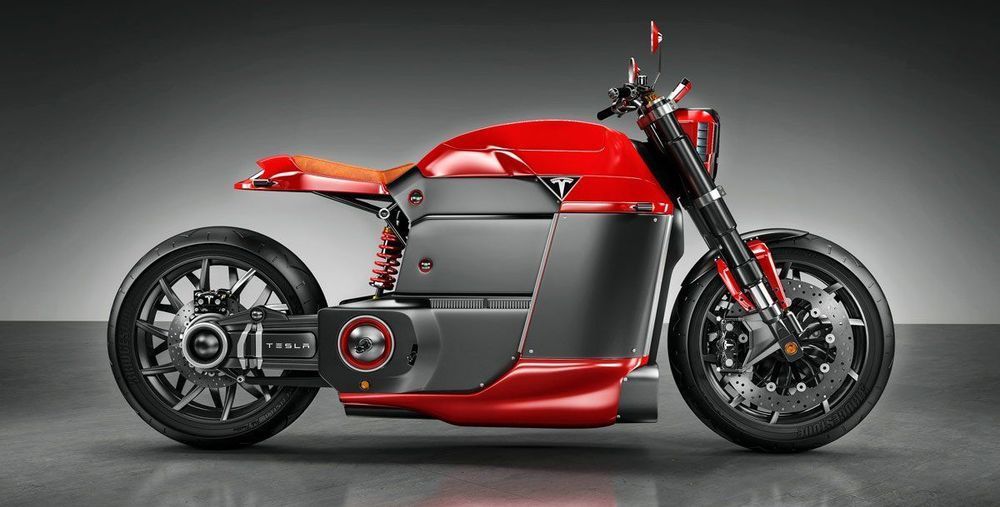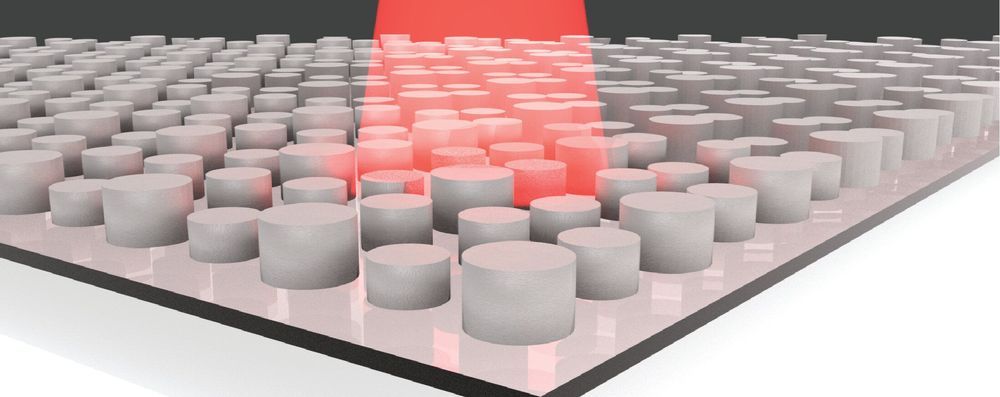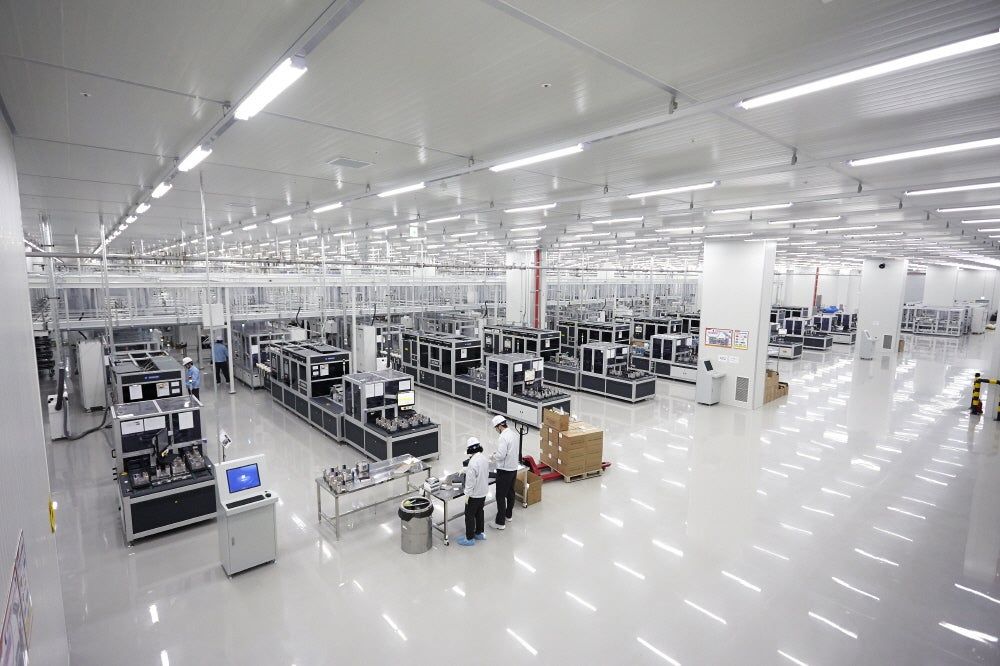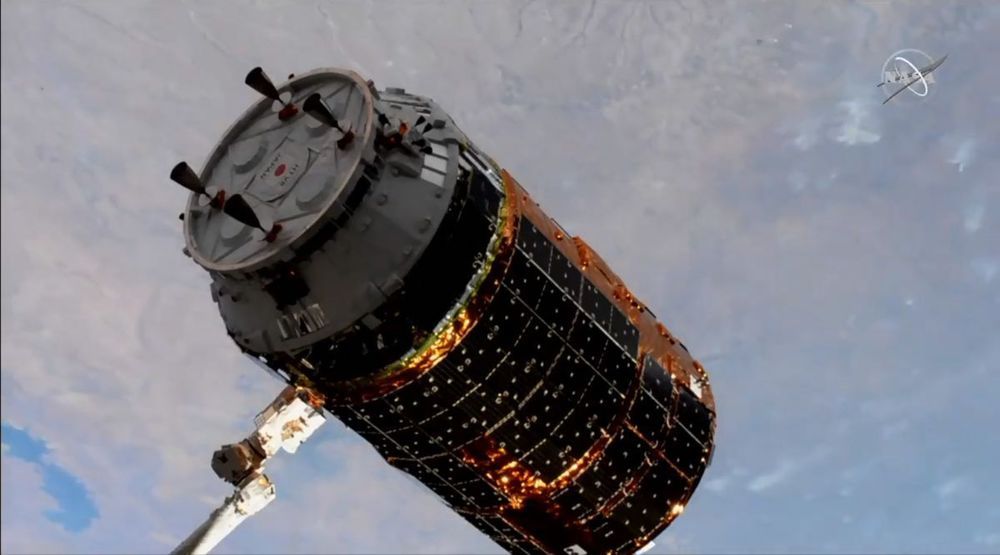Electric motorcycle and scooter design uses two or three wheel layouts outfitted with an electric motor and battery used for long distance travel, commuting and cruising.
an electric motorcycle concept based on dyson’s bladeless fans.

Electric motorcycle and scooter design uses two or three wheel layouts outfitted with an electric motor and battery used for long distance travel, commuting and cruising.
an electric motorcycle concept based on dyson’s bladeless fans.

A team including evolutionary biologists from the University of Toronto (U of T) have identified the ways in which herbicide-resistant strains of an invasive weed named common waterhemp have emerged in fields of soy and corn in southwestern Ontario.
They found that the resistance—which was first detected in Ontario in 2010—has spread thanks to two mechanisms: first, pollen and seeds of resistant plants are physically dispersed by wind, water and other means; second, resistance has appeared through the spontaneous emergence of resistance mutations that then spread.
The researchers found evidence of both mechanisms by comparing the genomes of herbicide-resistant waterhemp plants from Midwestern U.S. farms with the genomes of plants from Southern Ontario.

This new breed of city takes various different forms, from government initiatives, to public-private partnerships, to entirely private enterprises. Many are being used to jump-start economies in the developing world, with masterplans carefully calibrated to attract foreign investors and treasuries looking to sink their funds into something concrete. They provide a powerful means for wealthy countries to expand their strategic influence abroad, with the construction of new cities acting as a form of “debt-trap diplomacy”, tying host nations into impossibly burdensome deals. They are billed as a panacea for the world’s urban ills, solving overcrowding, congestion and pollution; yet, more often than not, they turn out to be catalysts for land dispossession, environmental degradation and social inequality.
The feature Kim enjoys most is a small touchscreen display on his kitchen wall that allows him to keep track of his and his wife’s consumption of electricity, water and gas and, most important, compare it against the average statistics for the building. Flicking between the screens of bar charts and graphs, a broad grin spreads across his face: for yet another day running, they are more energy-efficient than all their neighbours.
From their living room window at the top of one of the city’s new residential towers, a panorama of downtown Songdo unfolds. Across an eight-lane highway lies Central Park, a broad swath of trees surrounding an ornamental lake, flanked by rows of glass towers with vaguely jaunty silhouettes. Armies of identikit concrete apartment blocks march into the hazy distance beyond, terminating at a Jack Nicklaus-designed golf course. It looks a lot like many other modern Asian cities, a place of generic towers rising above a car-dominated grid. Public life is mostly confined to the air-conditioned environments of malls and private leisure clubs.
Initiated by the South Korean government in the late 1990s, when Incheon airport was being planned, Songdo represents a model that has been replicated numerous times around the world. Begun as a joint venture with US developer Gale International – which has since hawked its “city in a box” kit to other countries – the Songdo International Business District was conceived as a $40bn hub for international companies, an exemplar of sustainable urbanism and testing ground for new smart city technologies.

Electrical engineers at Duke University have harnessed the power of machine learning to design dielectric (non-metal) metamaterials that absorb and emit specific frequencies of terahertz radiation. The design technique changed what could have been more than 2000 years of calculation into 23 hours, clearing the way for the design of new, sustainable types of thermal energy harvesters and lighting.
The study was published online on September 16 in the journal Optics Express.
Metamaterials are synthetic materials composed of many individual engineered features, which together produce properties not found in nature through their structure rather than their chemistry. In this case, the terahertz metamaterial is built up from a two-by-two grid of silicon cylinders resembling a short, square Lego.
Tesla has filed for a new patent on a design for a liquid-cooled charging connector, like the one used at its Supercharger stations.
With the advent of faster-charging electric vehicles, charging station manufacturers need to develop higher-powered DC fast charger and those machines generate more heat that needs to be dissipated.
When introducing its new V3 Supercharger, Tesla fixed this issue for the cable with a new “significantly lighter, more flexible, and more efficient” liquid-cooled cable than their previous air-cooled cable found on the V2 Superchargers.

Wangari Maathai for years told people to plant trees. She is the reason Kenyans plant trees in protected forests, and will continue for a very long time.
Trees are a low-tech, high-efficiency way to offset much of humankind’s negative impact on the climate. What’s even better, we have plenty of room for a lot more of them.
A new study conducted by researchers at Switzerland’s ETH-Zürich, published in Science, details how Earth could support almost an additional billion hectares of trees without the new forests pushing into existing urban or agricultural areas. Once the trees grow to maturity, they could store more than 200 billion metric tons of carbon.
Great news indeed, but it still leaves us with some huge unanswered questions. Where and how are we going to plant all the new trees? What kind of trees should we plant? How can we ensure that the new forests become a boon for people in those areas?

Hanwha Q Cells officially opened its 300,000 square foot solar panel factory in Dalton, Georgia last week, claiming it is the largest such manufacturing facility in the western hemisphere. The $200 million factory employs more than 650 workers and is capable of producing 12,000 solar panels a year — enough to generate 1.7 GW of electricity. Its standard production panel features six bus bars, has an efficiency of about 19%, and an output of up to 345 watts.

A robotic Japanese cargo ship successfully arrived at the International Space Station Saturday (Sept. 28) carrying more than 4 tons of supplies, including new batteries for the outpost’s solar power grid.
The Japan Aerospace Exploration Agency’s (JAXA) HTV-8 cargo ship pulled up to the space station at 7:12 a.m. EDT (1112 GMT), where it was captured by a robotic arm wielded by NASA astronaut Christina Koch inside the orbiting lab. The station and HTV-8, also known as Kounotori 8 (Kounotori means “white stork” in Japanese), were soaring 262 miles (422 kilometers) over Angola in southern Africa at the time.
“What you all have done is a testament to what we can accomplish when international teams work together towards a common goal,” Koch radioed to NASA’s Mission Control in Houston and flight controllers at JAXA’s Tsukuba Space Center in Japan. “We’re honored to have Kounotori on board, and look forward to a successful and productive mission together.”

This week a new group of astronauts launched from the Baikonur Cosmodrome in Kazakhstan headed for the International Space Station. The three new ISS crew members, Jessica Meir of NASA, Oleg Skripochka of Roscosmos, and Hazza Ali Almansoori of the Emirati Space Agency docked with the station several hours later, temporarily taking the population of the station to nine people. That marks the largest crew aboard the ISS since 2015, but members of previous Expedition team 60 will be returning to Earth in around a week.
While the transferring of astronauts to and from the ISS is fairly standard for space agencies these days, there was something special about this mission. Astronaut Christina Koch was looking forward to being joined by her best friend and fellow NASA astronaut Jessica Meir, so she decided to capture an image of the incoming craft from her perspective on board the ISS. The result is the stunning photo above, showing the ghostly trails from the first stage and the cloud of vapor around the craft.
The astronauts traveled aboard a Soyuz MS-15 spacecraft, docking at the station’s Zvezda service module six hours after launch. The crew will stay aboard the ISS for at least six months and will be working on scientific projects in varied fields including biology, physical sciences, and the development of new technologies. They will also perform upgrades to the stations including installing new lithium-ion batteries which collect power from the station’s solar panels, part of an ongoing project to update the ISS’s power system.
Forget solar roofs, these solar panels are cheap, paper-thin and made with a revolutionary conductive ink.